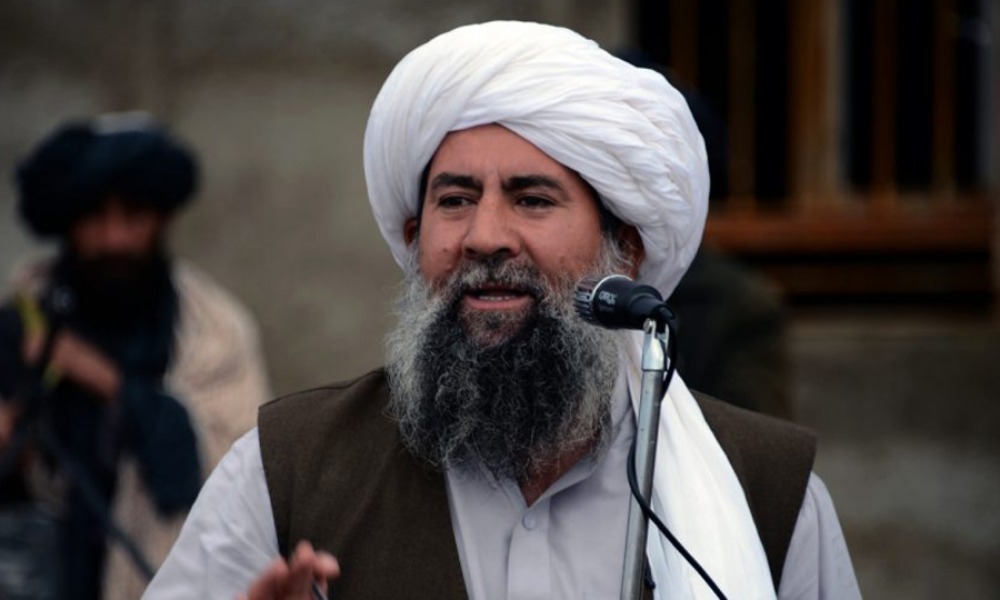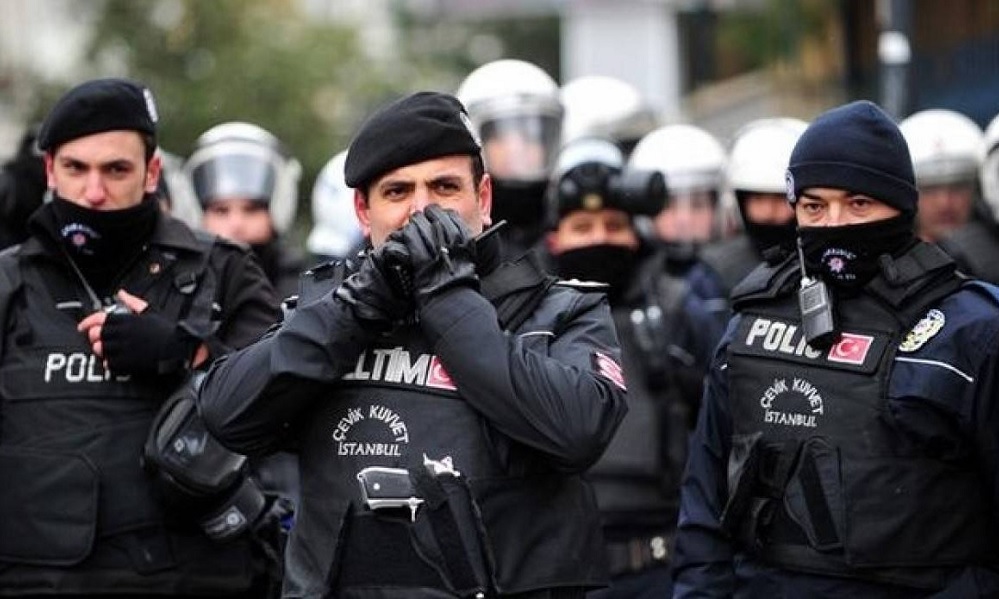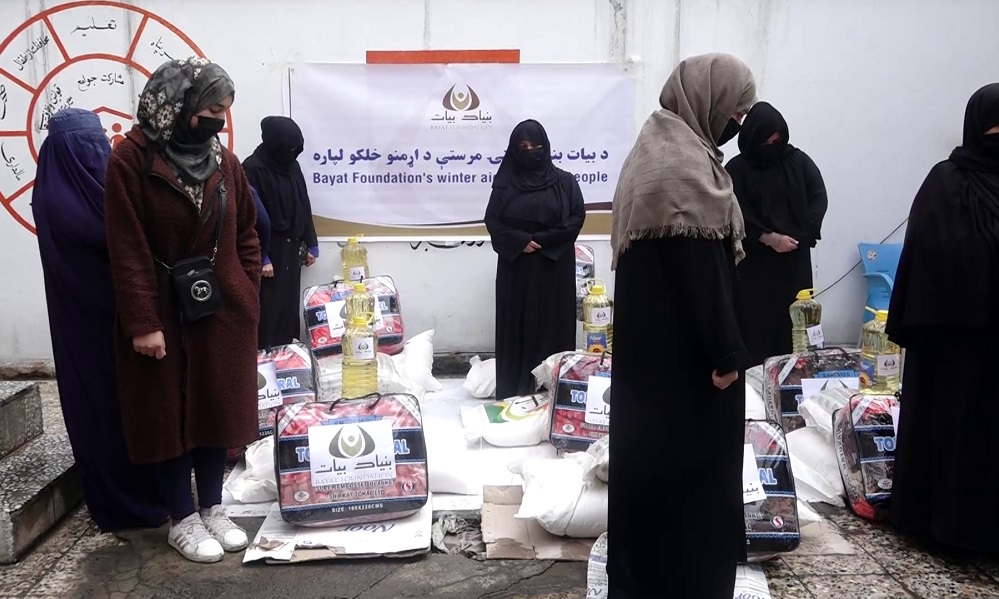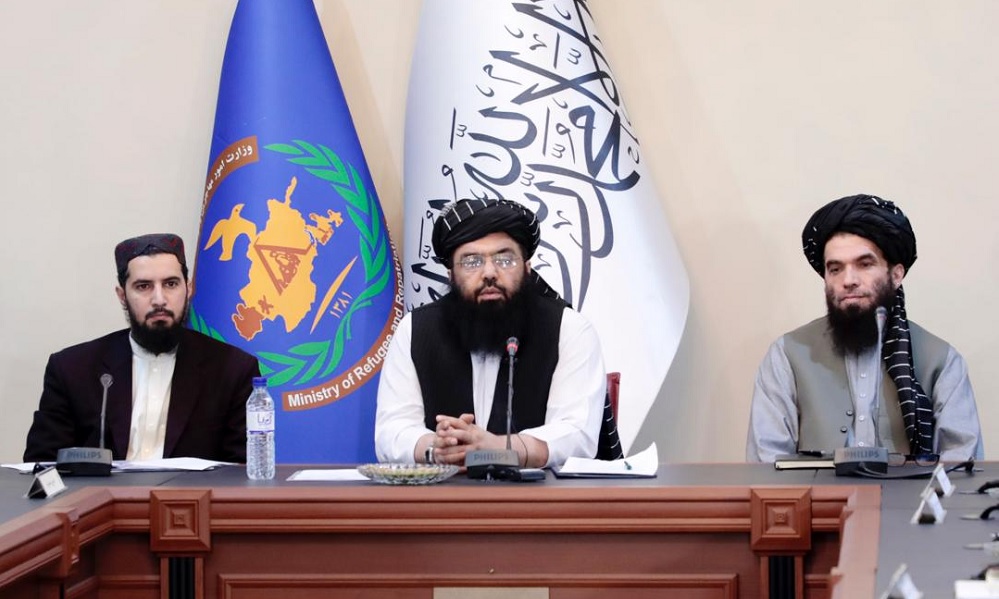Latest News
Taliban faction’s deputy dies in Kabul from injuries sustained in Herat skirmish

Deputy head of the Taliban splinter group in the western part of the country, Mullah Abdul Manan Niazi, died in Kabul on Saturday from injuries sustained last week in a skirmish in Herat.
Sources, speaking on condition of anonymity, confirmed his death and said he had been transferred to a Kabul hospital on Thursday afternoon due to the severity of his wounds.
Niazi, who was reportedly shot three times in the head, was initially taken to Herat District Hospital after being seriously wounded in an apparent Taliban-on-Taliban attack.
Sources said three insurgents were killed and three others were wounded in the clash.
Provincial officials told Ariana News last week that Niazi was wounded on Wednesday in a skirmish with Taliban militants in the Guzara district of the province.
The sources stated at the time that Niazi, a pro-Taliban commander, was taken to Herat’s public hospital.
According to the sources, three of Niazi’s bodyguards were killed in the skirmish.
The Taliban has not commented in this regard.
Niazi was believed to have been Mullah Mohammad Rasool’s deputy – the head of the faction that split from the Taliban in November 2015, following the announcement in July that year that the Taliban’s longtime leader Mullah Omar was dead.
The dissident faction’s announcement was at the time believed to be the first public and official split of the Afghan Taliban since the group formed in the 1990s.
Omar’s deputy at the time was Mullah Akhtar Mohammad Mansoor, who claimed power — sparking a battle over the group’s leadership.
Rasool and Niazi were among several Taliban commanders who challenged Mansoor’s appointment as leader. Mansoor was the leader of the group from 29 July 2015 to 21 May 2016 but was killed in a drone strike by the United States in Pakistan.
Niazi was born 1968 in Pashtoon Zarghoon district, in Herat province and served as governor of Kabul Province under the Taliban regime.
Latest News
Turkish intelligence captures a Daesh member near the Durand Line

Turkish intelligence agents have captured a senior member of Daesh near the Durand Line, reportedly preventing planned suicide attacks in Turkey and other countries, according to Turkey’s state-run Anadolu Agency on Monday.
The suspect, identified as Mehmet Goren, is a Turkish citizen. He was apprehended during a covert operation and transferred to Turkey. Details on the timing of the operation or the involvement of Afghan and Pakistani authorities were not disclosed.
According to the report, Goren had risen through the ranks of Daesh and was allegedly tasked with carrying out suicide bombings in Turkey, Pakistan, Afghanistan, and Europe.
Daesh has a history of deadly attacks in Turkey, including the January 1, 2017 shooting at an Istanbul nightclub that killed 39 people.
Anadolu Agency reported that Goren’s arrest also provided intelligence on the group’s recruitment strategies and planned activities.
Latest News
Dozens of needy families in Kabul receive winter aid from Bayat Foundation

Dozens of needy families in Kabul’s fifth district have received essential winter assistance from the Bayat Foundation, as part of ongoing efforts to ease hardship during the cold season and worsening economic conditions.
According to foundation officials, the aid package includes staple food items such as flour, rice, and cooking oil, along with warm blankets to help families cope with freezing temperatures. Haji Mohammad Ismail, Deputy Head of Bayat Foundation, said the distribution began in Kabul and will soon be expanded to other provinces.
“Our assistance includes flour, rice, cooking oil, and blankets,” Ismail said. “Today, we started distributing these items in Kabul’s fifth district, and God willing, the aid will reach other provinces in the near future.”
Afghanistan continues to face widespread poverty, unemployment, and food insecurity, with many families struggling to meet basic needs, particularly during winter when access to work and heating becomes more difficult.Humanitarian organizations and charitable foundations have stepped up relief efforts to support those most affected.
Beneficiaries welcomed the assistance, describing it as a lifeline. “May God bless you for helping the poor. We had nothing and no work,” said one recipient. Another added, “Thank you for your help. Our flour was almost finished.”
Bayat Foundation officials stressed that winter aid distributions will continue in Kabul and other provinces in the coming days, as part of their broader commitment to supporting needy families across the country.
Latest News
Nearly seven million Afghan refugees return home since Islamic Emirate’s takeover

Since the Islamic Emirate came to power, approximately 6.8 million Afghans have returned home, either voluntarily or forcibly, from neighboring countries and other nations, according to the Minister of Refugees and Repatriation.
Mawlawi Abdul Kabir, speaking at a meeting on finalizing a draft plan for a permanent migration solution in Afghanistan, added that 1.3 million Afghans have been internally displaced due to natural disasters during the same period.
With winter approaching, widespread poverty and severe cold are threatening thousands of lives. Meanwhile, the forced expulsion of Afghan migrants from neighboring countries, particularly Iran and Pakistan, continues.
The Islamic Emirate has repeatedly urged neighboring states to allow migrants to return voluntarily. According to UNHCR, over two million Afghans have returned from Iran and Pakistan since the start of 2025.
-

 Latest News3 days ago
Latest News3 days agoAfghan border forces prevent illegal entry of hundreds into Iran
-

 Latest News3 days ago
Latest News3 days agoPakistan summons Afghan diplomat over deadly attack in North Waziristan
-

 Latest News2 days ago
Latest News2 days agoAfghan health minister calls for medical cooperation between Kabul and New Delhi
-

 Latest News1 day ago
Latest News1 day agoAfghanistan signs 30-year deal for marble mining in Daikundi
-

 Latest News3 days ago
Latest News3 days agoJapan allocates nearly $20 million in humanitarian aid for Afghanistan
-

 Latest News2 days ago
Latest News2 days agoKarzai urges reopening of girls’ schools and universities for Afghanistan’s bright future
-

 Health5 days ago
Health5 days agoAfghanistan seeks India’s support in standardizing traditional medicine
-

 World5 days ago
World5 days agoUS readies new Russia sanctions if Putin rejects peace deal, Bloomberg News reports
























